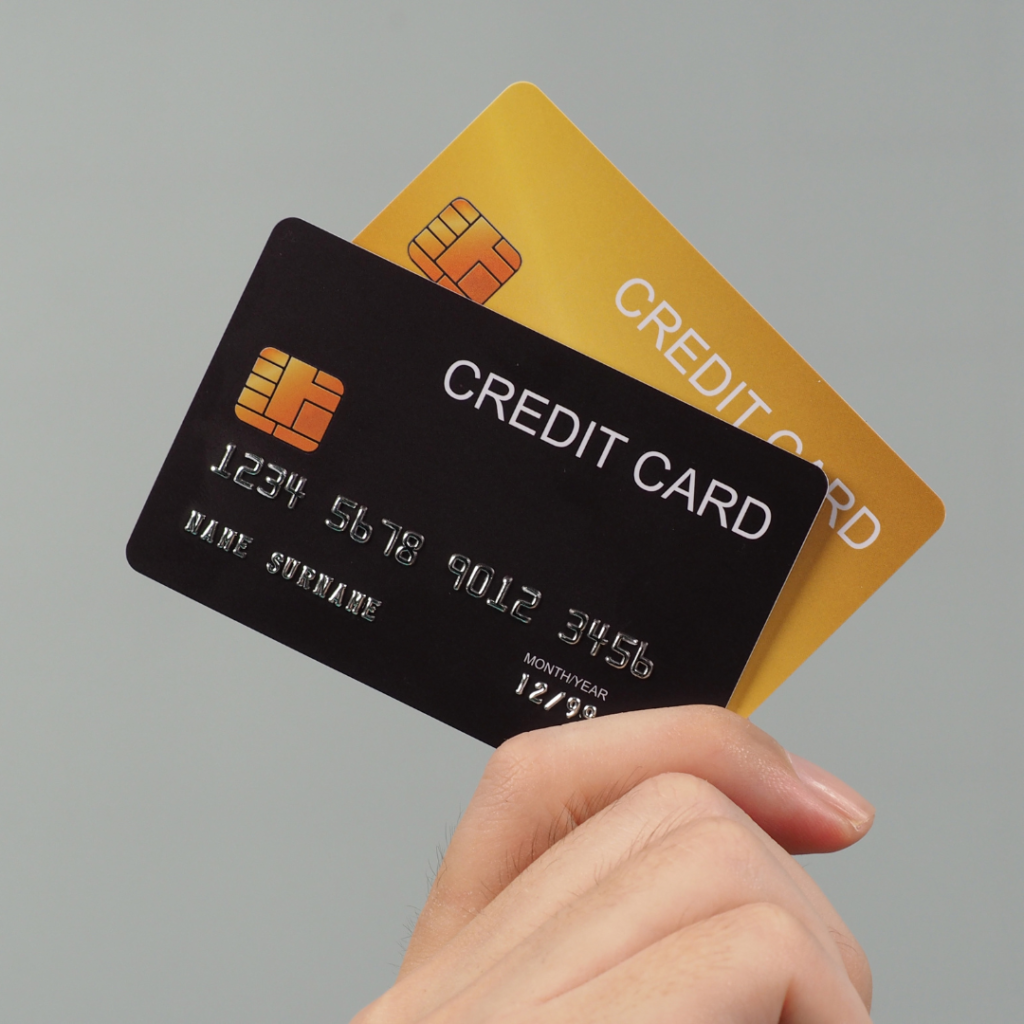
Just to start with a disclaimer here, I am not a proponent of a credit card. I do not recommend people to buy credit card, as I am of the old-school follower that spend what you have in your hand, and do not spend by borrowing or taking credit. But the main objective of this blog post is to create an understanding among those who use or want to use credit cards, as the number of credit cards in India has expanded by 3.5 times in the last nine years, from 14 million in 2014 to 90 million in 2023. Also, the overall number of credit card transactions has grown from over 51 million in 2014 to more than 277 million in 2023.
A lifestyle shift has encouraged young Indians to prefer credit cards for a variety of benefits and rewards, and this pattern is projected to grow. The rise in credit cards and associated transactions in India may be linked to improved availability of financial services, knowledge of finance, and convenient payment choices. However, we must consider certain factors before picking the best credit card for us.
While purchasing a credit card or while being canvassed by the sales executive in any shopping malls or in any other crowded public places, we may be attracted to buy the credit card on seeing the seemingly cost-free proposition and rewards of the cards. It may be noted here that the sales representatives try to sell the card by majorly highlighting only the rewards and positives of the cards.
Only after scrutinising the terms and conditions of the card, we may come to discover that the card was less beneficial than what has been told at the time of purchase. Also, you ought to do several mandatory purchases in order to avail the annual fee waiver, reward points, etc.
Such incidents of us getting bullied are prevalent. All of these are fantastic illustrations of what may happen when you don’t properly analyze your choices before making a financial decision. It also emphasizes the necessity of selecting the appropriate credit card depending on your requirements and situations. Before signing up for any credit card, consider the potential risks that exist, such as fees, penalties, reduced rewards, etc. Careful thinking can help you avoid unpleasant shocks and optimize your rewards.
While selecting the proper credit card might be difficult owing to the large number of options available, there are several measures you can take to streamline the selection procedure and guarantee that you pick the right one for your financial situation.
We will see some of the pointers that you need to keep in mind while selecting a credit card:
First of all, figure out why you need the card:

Before you choose a credit card, you must first determine why you need one. For example, if you’re new to the credit card world and want to improve your credit score, a low-fee entry-level credit card with minimal features is ideal. However, if you are attempting to restore your poor credit score, you may want to consider a secured card or one that notifies to all the main credit bureaus.
Alternatively, if you currently have a few cards, seek for a new one that allows you to save money in certain categories not covered by your current cards. Furthermore, some cards provide reward points, air miles, cash back, or a mix of all these three. So select which rewards are most important to you, and then search for the cards that provide them. Furthermore, if you enjoy a brand or a product or a service, you may see whether they provide co-branded cards. Finally, check for cards that provide special benefits such as access to airport lounges, no international transaction fees, and savings on movie tickets or dining out.
Your spending pattern is the key:
Start by examining your financial status. Check to see where you regularly swipe your card. Do you pay off your credit card bills in full each month, or do you carry a balance? If you have a habit of carrying over balances (which is not encouraged because it can lead to a vicious debt trap), seek for cards with lower interest rates on carried-over amounts. These cards may help you save money in the long term.
Users should also consider where they spend the majority of their money. Different cards provide differing benefits in various categories. For example, if you travel regularly, choose a credit card that provides air miles or hotel vouchers. It is necessary, however, to determine if the advantages exceed the costs. Cards that give numerous benefits sometimes have annual fees, so consider if you will use them enough to justify paying the annual cost. The important thing to remember here is that the worth of a credit card’s advantages is determined by your spending patterns and your capacity to pay off your balance in full each month.
Do your cost-benefit assessment:
A card that matches an individual’s lifestyle and spending patterns may not suit another’s wants. So, before trying for a new card, take the time to do a comprehensive cost-benefit assessment.

Some credit cards carry yearly fees, which might be justified if the advantages outweigh the costs. However, if you don’t intend to use the card frequently, they might soon overshadow the rewards it offers. A card’s cost often comprises the annual percentage rate (APR), yearly fee, balance transfer fee, international transaction fee, and late payment fees. The APR is the interest rate you pay on the credit card bill amount that you roll forward each month, and the APR rate varies depending on your card type and credit score. So, if you intend to carry a balance each month, you may want to choose a card with a low interest rate. Knowing these expenditures ahead of time will help you escape financial errors that may lead to debt build-up. According to research, many credit card users spend more money on fees and interest than they gain in reward points.
You must determine if the benefits supplied warrant the fee imposed. For example, having an entry-level card with a low reward rate and a large annual cost may not be a good idea, particularly when better cards are available at lower fees. Furthermore, tourists should select cards that do not impose fees or charge less for overseas purchases. Another factor to consider is the rate at which you receive reward points. For example, a card that offers a flat 2% cash back on every purchase may be preferable than one that offers increased reward points on purchases with only certain merchants.
How much number of cards you should have:
There are no restrictions on how many credit cards you may have. Having numerous cards has both potential risks and rewards. If you have more than one credit card, you may utilize them wisely to maximize your financial savings by making the correct purchases on the correct cards. Card users may also schedule their consumption according to each card’s payment cycle, which may assist them in handling their monthly cash flows more effectively. The leftover credit limit on numerous cards might also be useful in an emergency.

Yet, experts caution that if users do not properly manage their credit cards, they risk overspending and getting into a debt trap. Possibly having too many credit cards with big amounts on each indicates a greater reliance on credit and makes you appear credit-hungry, which can have an adverse impact on your credit score.
Devaluation of the card:
Usually, a credit card’s worth is determined by its rewards. However, card issuers may degrade a card by modifying its reward systems, lowering the redeemable value of points, or raising the number of points needed for certain benefits. Therefore, it is critical to evaluate the updated details of your card’s perks. It is also advisable to redeem your rewards points prior to them losing value, as many cards’ reward points become invalid over time. Knowing the causes behind the devaluation of a credit card’s rewards is crucial.
Understanding the new scheme for rewards is also essential since it will help you determine whether the card is a good fit for your spending patterns or financial objectives. If not, you can cancel it. However, make your decision carefully, as cancelling a credit card will temporarily affect your credit score. Certain credit card issuers allow you to switch to a new card without doing a strict credit inquiry. Hence you can avail that option as well to switch between cards if you feel the benefits provided on the older one are not on par with the latest ones that you have shortlisted.
To Conclude – Before thinking about a new credit card, be sure you’re familiar with its terms and conditions. Keep in mind that credit card limit is not a gift; it is a debt that must be repaid on time. It is also critical to prioritize making your credit card bill payments on time, since any delays may adversely affect your credit score and make it difficult to obtain a credit card limit or credit in general in the future. While alluring sign-up incentives may appear appealing, determining if a card is compatible with your long-term financial goals and your spending habits is critical to sustain a healthy financial situation. Furthermore, you should watch your credit card account statements and set up alerts to detect any possible scams.





